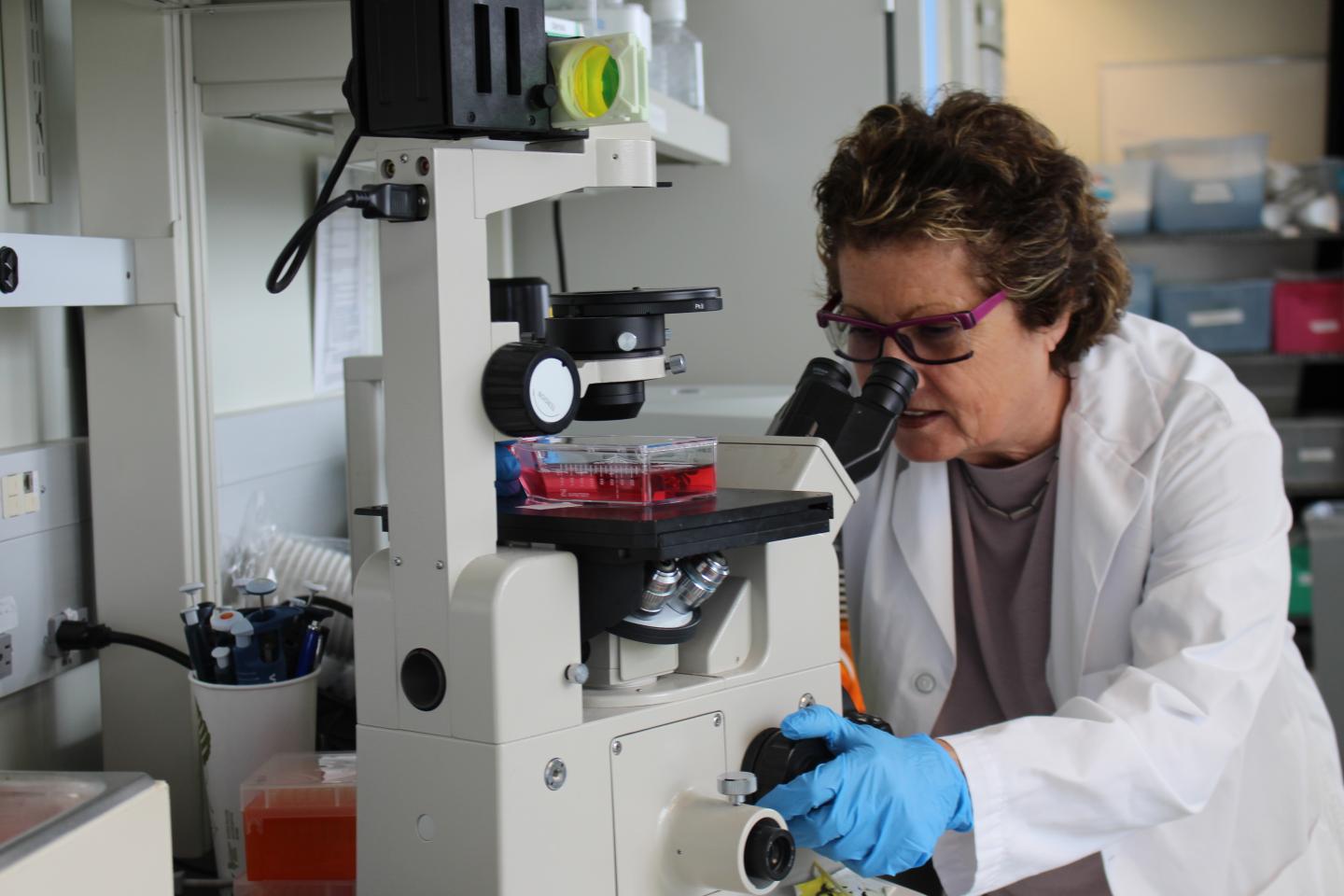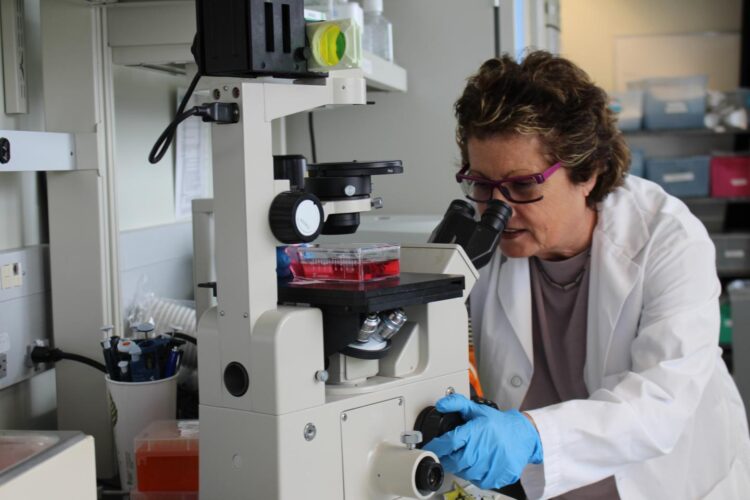International research shows for the first time that interferon-α2b improves virus clearance and decreases levels of inflammatory markers

Credit: University Health Network
(Toronto – May 15, 2020) – An international team of researchers led by Dr. Eleanor Fish, emerita scientist at the Toronto General Hospital Research Institute, University Health Network, and professor in the University of Toronto’s Department of Immunology, has shown for the first time that an antiviral drug can help speed up the recovery of COVID-19 patients.
According to the new study, published today in Frontiers in Immunology, treatment with interferon(IFN)- α2b may significantly accelerate virus clearance and reduce levels of inflammatory proteins in COVID-19 patients.
The research team found that treatment with this drug, which has been used clinically for many years, significantly reduced the duration of detectable virus in the upper respiratory tract, on average by about 7 days. It also reduced blood levels of interleukin(IL)-6 and C-reactive protein (CRP), two inflammatory proteins found in COVID-19 patients.
Dr. Fish says that the research team considered IFN-α therapy for COVID-19 after they demonstrated interferon provided therapeutic benefit during the SARS outbreak of 2002 and 2003.
“Rather than developing a virus-specific antiviral for each new virus outbreak, I would argue that we should consider interferons as the ‘first responders’ in terms of treatment,” says Dr. Fish.
“Interferons have been approved for clinical use for many years, so the strategy would be to ‘repurpose’ them for severe acute virus infections.”
Boosting a natural defense mechanism
Interferons are a group of signaling proteins released by the human body in response to all viruses. As Dr. Fish explains, they are a “first line of defense.”
They target different stages of a virus’s life cycle, inhibiting them from multiplying. They also boost an immune response by activating different immune cells to clear an infection. Some viruses, however, can block this natural defense mechanism.
“But it is possible to override this block. If a virus blocks interferon production, then treating with interferon can offset this.”
Study details
The researchers conducted this exploratory study on a group of 77 patients with COVID-19 in Wuhan, China. These patients were admitted to Union Hospital, Tongii Medical College, between January 16 and February 20, 2020. They represented moderate cases of the disease as none of the patients required intensive care or prolonged oxygen supplementation or intubation.
Despite the study’s limitations of a small, non-randomized group of patients, the work provides several important and novel insights into COVID-19 disease, notably that treatment with IFN-α2b can accelerate viral clearance from the upper respiratory tract and also reduce circulating levels of inflammatory factors that are associated with severe COVID-19.
Dr. Fish says a randomized clinical trial is a crucial next step. According to her, a clinical trial with a larger group of infected patients who are randomized to treatment or placebo would further this research.
In the meantime, the findings from this study are the first to suggest therapeutic efficacy of IFN-α2b as an available antiviral intervention for COVID-19, which may also benefit public health measures by shortening the duration of viral clearance and therefore slowing the tide of the pandemic.
###
For more information or to book an interview with Dr. Eleanor Fish please contact:
Ana Fernandes
Senior Public Affairs Advisor, UHN
437-216-4597
[email protected]
About UHN:
University Health Network consists of Toronto General, recently voted one of the Top 10 Hospitals in the World according to Newsweek Magazine, and Toronto Western Hospital, the Princess Margaret Cancer Centre, Toronto Rehabilitation Institute, and the Michener Institute of Education at UHN. The scope of research and complexity of cases at University Health Network has made it a national and international source of discovery, education and patient care. It has the largest hospital-based research program in Canada, with major research in cardiology, transplantation, neurosciences, oncology, surgical innovation, infectious diseases, genomic medicine and rehabilitation medicine. University Health Network is a research hospital affiliated with the University of Toronto. http://www.
Media Contact
Ana Fernandes
[email protected]
Related Journal Article
http://dx.





